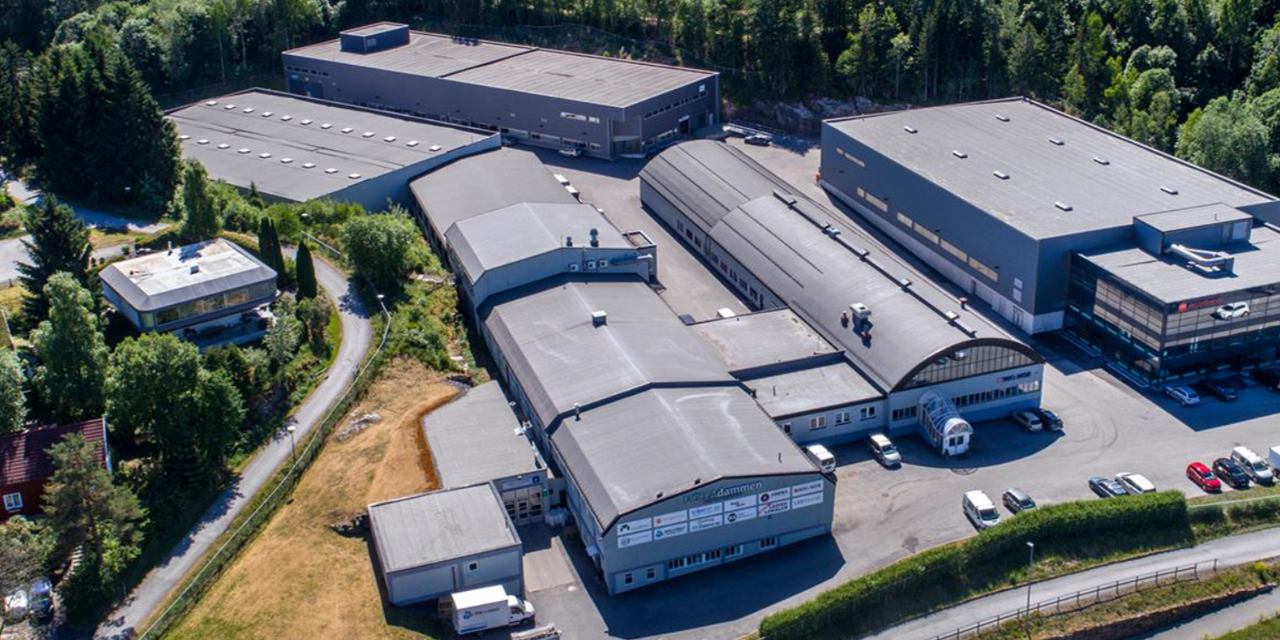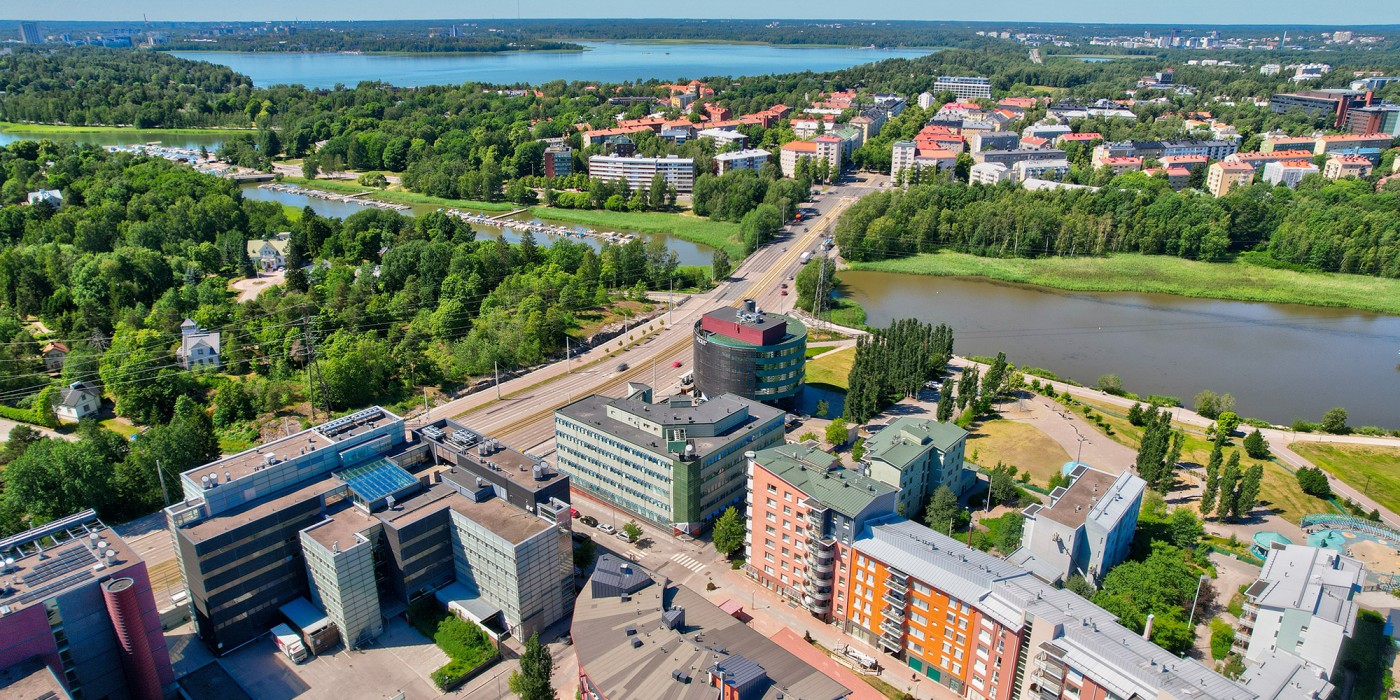In recent weeks, Covid-19 has put Europe in the middle of the eye of the storm. In addition to the tragic impact on individuals and families, the virus has affected the world's stock markets and in Sweden had a strong negative impact - also on real estate shares. As real estate industry figures are reported quarterly it is difficult to predict the effects on real estate markets around the world, where much also depends on the development during the beginning of the second quarter. However, that the real estate industry is entering this crisis with historically low vacancies. The fact that Governments around the world have been swift to offer financial incentives, which benefit workers and companies, and in turn the tenants' long-term ability to pay the rent. The rental market also moves more slowly than the rest of the economy by its nature with different contract lengths and types of contracts. Furthermore, caution is also required in analyzes as properties during the first quarter of each year historically often indicate a weaker development than the rest of the year.
However, Cushman & Wakefield already sees, after actors have reviewed their own management and ensured security for employees and tenants, the tendencies that several trends may both intensify or pause as a result of the increased contagion measures introduced and the general concern that follows. Being creative and learning from actions in other real estate markets around the world is a prerequisite for being able to work proactively.
“As advisors we do impact assessments for our clients, both investors and tenants, so that they can, under prevailing circumstances, secure their business to the best possible extent and develop it further. With our global network we get a good overview of what happens in other parts of the world and can thus build our advice to support in the right way," says Karl Persson, CEO Cushman & Wakefield Sweden.
In Sweden, we already see that investors in the short to medium term want a risk premium for real estate exposure towards the hospitality industry, some types of retail and coworking. This discount is due to the fact that hotel and commercial properties have indirectly suffered as both business and tourist journeys slowed down and purchasing patterns changed. Regarding commerce, this is happening in a situation where major, revolutionary changes in the industry were underway even before, due to e-commerce's continued expansion, and this development is now intensifying. For those players who have started a functioning omnichannel solution, ie both physical and digital shop with a smooth connection between them, have several legs to stand on. Online trading through click-and-collect or home deliveries directly from the physical stores are successful at the moment. In many places, this has been a prerequisite for tenants to be able to maintain revenue even when the physical visits from consumers have decreased. We also clearly see that online commerce has increased in those parts of the world that have had long-term transmission restrictions. It can also be noted that purchases of food and pharmacy items in Sweden have been strongly positively affected in recent weeks and with increased positive pressure on associated logistics channels and logistics properties.
Within the global retail, many brands made sure in advance that they had a good stock before the Chinese New Year, ie before the outbreak itself. Spring and summer collections were already sent in several cases, but there is a risk that deliveries of JiT goods (just-in-time) will be affected. Brands with a large local presence in China recognize the efforts made there with temporary closures and shortened opening hours. Asia today accounts for 34% of global luxury goods consumption and China accounts for half of that. One method developed by fast food chains in other parts of the world, where restrictions have been more protracted, is to apply non-contact delivery of food.
The industrial sector on other hand, is affected by increased costs and longer lead times for production, linked to, among other things, the introduction of quarantine at deliveries or direct interruptions in deliveries of components. Different types of transit warehouses are therefore believed to be affected in a shorter perspective. Swedish production and economy are also strongly affected by other countries in Europe, primarily Germany which is Sweden's largest export market, and Italy and France which supply the automotive industry. Today spare parts and car manufacturers have difficulties finding alternative suppliers. Despite this, the conditions for logistics still look good. The driving force behind this is a structurally increasing e-commerce with efficiency improvements at the supplier level to reduce costs and enable faster deliveries. In a longer perspective, both industry and logistics can be robotized to a greater extent than today. In line with technological developments, local production can also be helped by such as components being 3D-printed locally in different parts of the world instead of being transported long distances.
The hotel industry has had a severe blow as both business travel and tourism have decreased significantly. Now that social distancing also has an impact, reduced occupancy is further intensified. The question to address is how behavioral patterns may change in a longer perspective; will the use of video meetings reduce business travel? If prolonged infection prevention restrictions will prevent holidays outside our own country and behavior patterns will be changed so that residents prefer different forms of staycations in the future, this can benefit our own hospitality industry even if conferences and business trips decrease. The long-term impact is currently difficult to predict and thus associated with increased uncertainty which also strikes strongly against this segment.
Office occupiers in Sweden have come to act a bit more cautiously, pausing projects and prolonged lead times for contract signings. This trend may continue until the underlying demand for the companies' products and services becomes stable. In a shorter perspective, coworking and short-term contracts are stress-tested as more people are asked to work from home. Important in a longer perspective to be a competitive landlord is to facilitate and secure high-quality digital solutions for flexible office work even when tenants return. Now it is also clear how important social contact is and that the office fulfills an important purpose based on our needs as social beings. Based on this, it is important in real estate development in the future to remember to provide a good service as tenants may reduce the area that is needed after a certain part of the business can be managed remotely.
Regarding project development, it may be worth mentioning that in those countries that have significantly more severe infection spread restrictions than Sweden has, construction production has been ongoing throughout the period.


 All Nordics
All Nordics
 Sweden
Sweden
 Denmark
Denmark
 Finland
Finland
 Norway
Norway






















